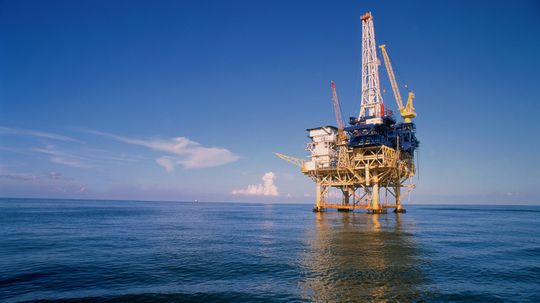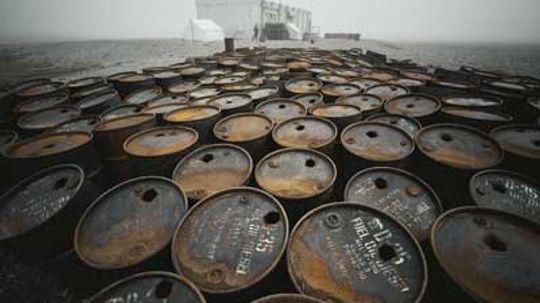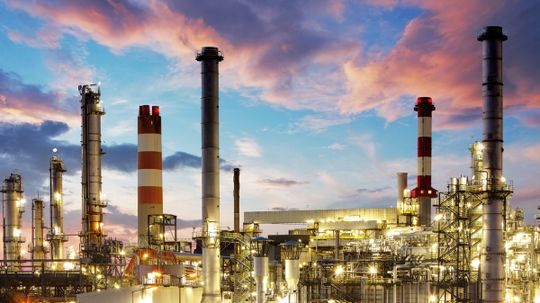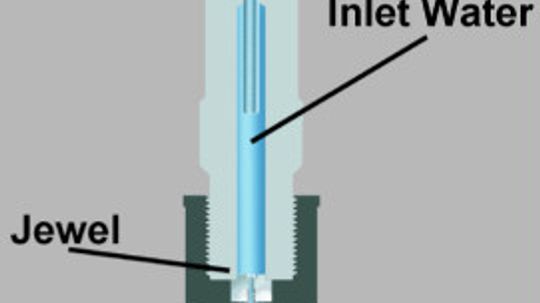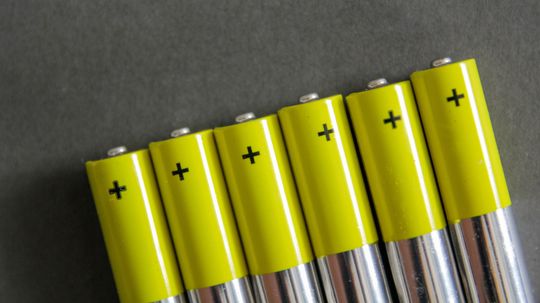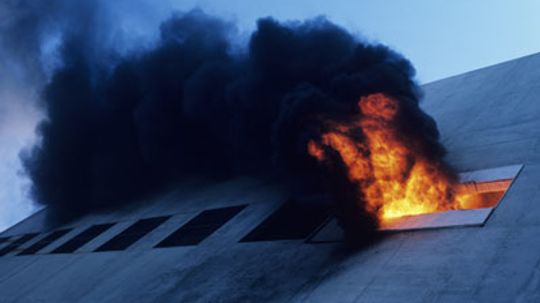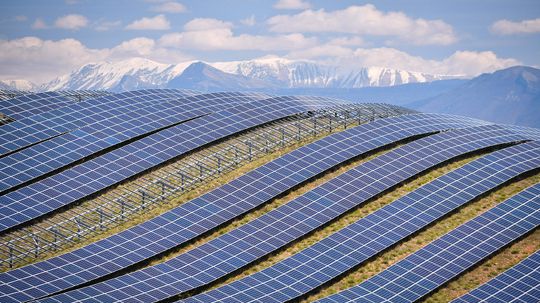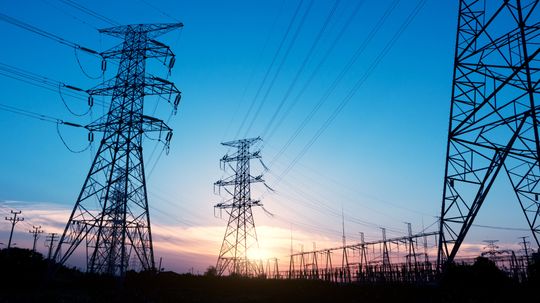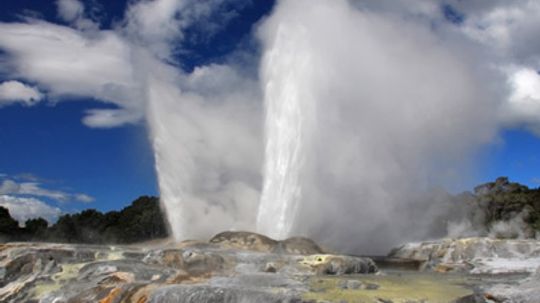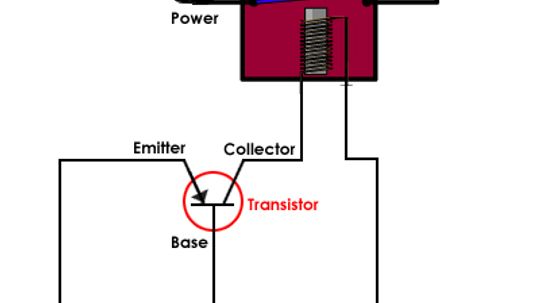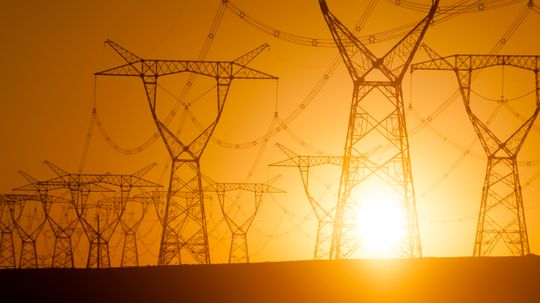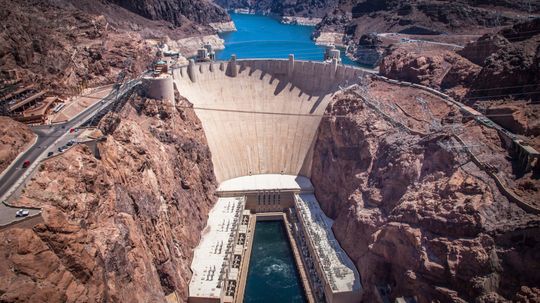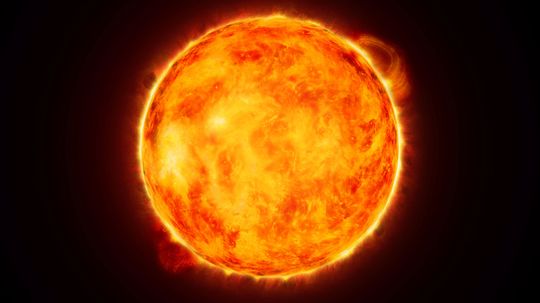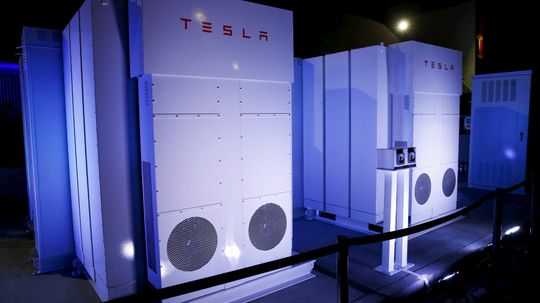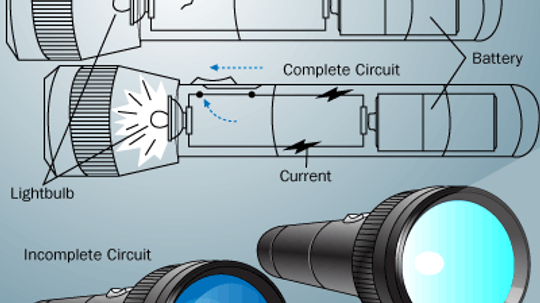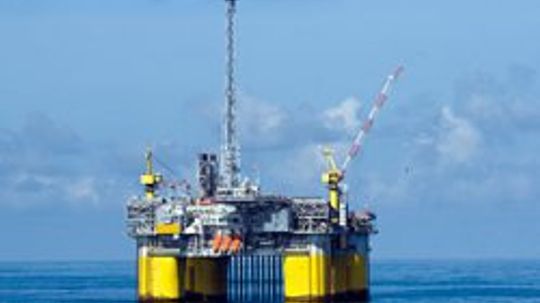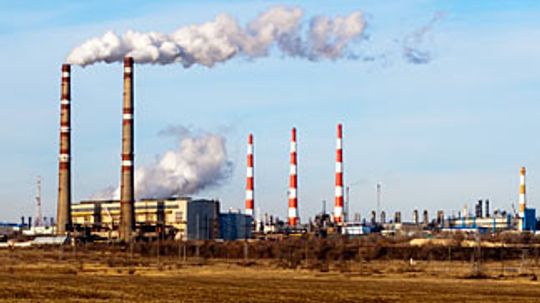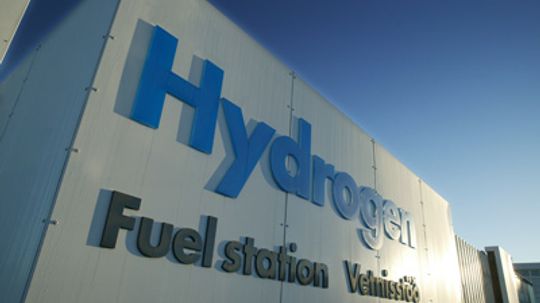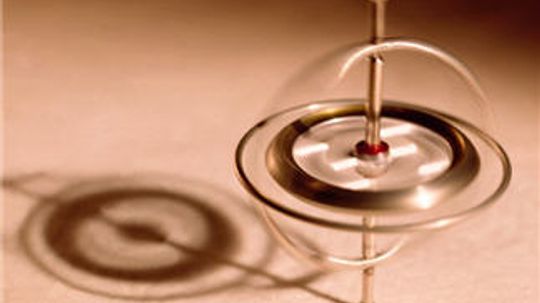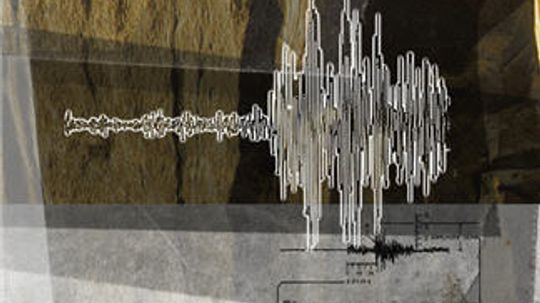Energy Production
The greatest need modern civilizations have is energy. Learn about oil, electricity and newer forms of energy like solar and wind power.
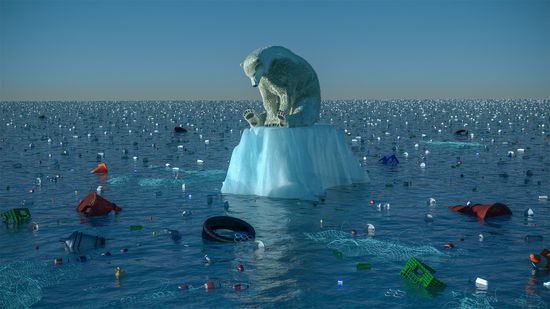
Study Says 2035 Is Climate Change Point of No Return

5 Ideas for Doubling the World's Food Supply

10 Earth Day Activities for Families
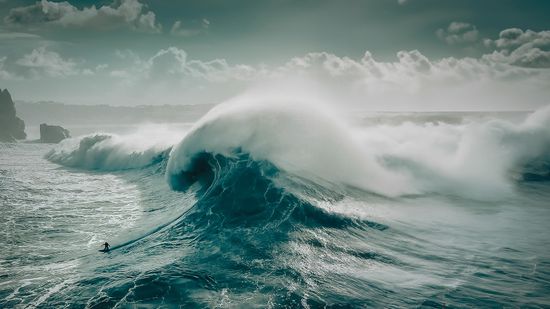
What Was the Largest Wave Ever Recorded?
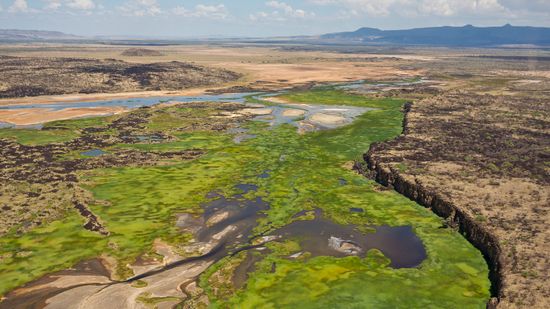
Is Africa Splitting in Two? Really? Here's the Scoop
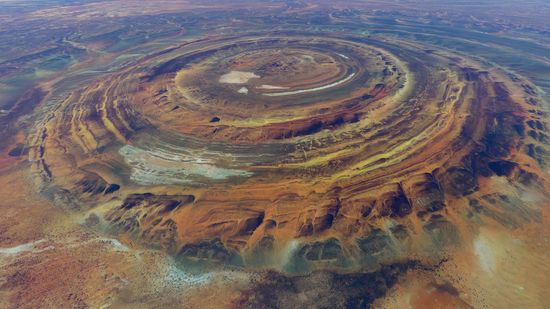
What Exactly Is the Eye of the Sahara, aka the Richat Structure?

The World Hits 8 Billion People; Is That Good or Bad?
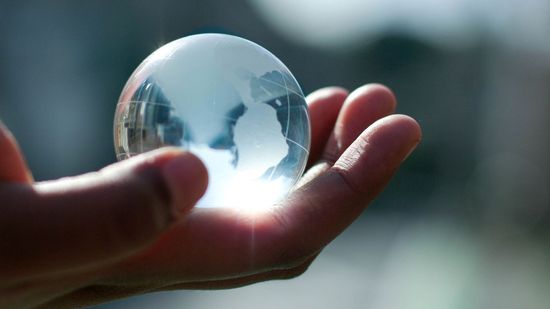
Quiz: Can You Tell Climate Change Fact From Fiction?

Did the Mayan civilization end because of climate change?
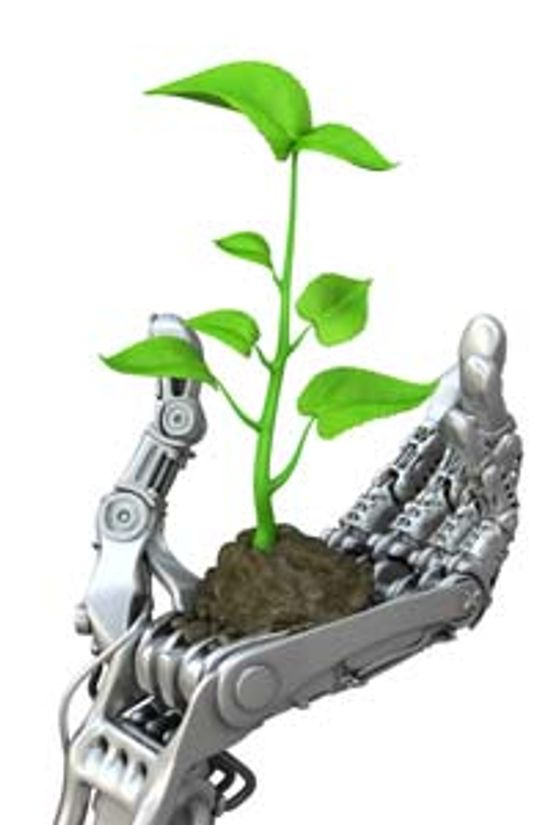
Top 5 Green Robots
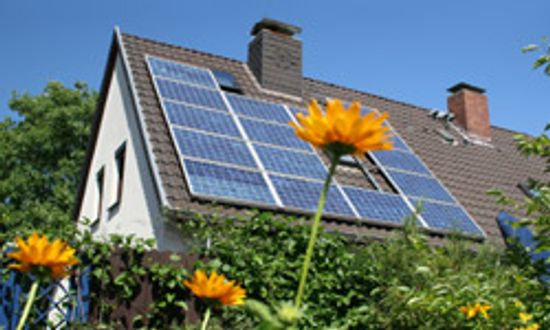
5 Things to Consider When Building a Solar-powered Home
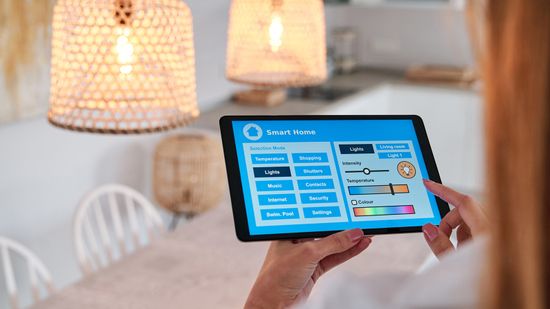
What Uses the Most Electricity in a Home?
Learn More / Page 2
Drilling down thousands of feet in lightless ocean depths and transporting that oil to the surface without spilling it isn't exactly easy. Did we mention the rough seas?
By Robert Lamb & Desiree Bowie
Laws, treaties and the limits of human technology have kept some petroleum reserves just beyond the reach of oil companies. So where are they dying to drill?
By Robert Lamb
Despite the dangers, oil refineries are essential to society in its current form. Learn how crude oil is converted into everything from butane to gasoline.
Advertisement
How can water cut through steel? A device called a waterjet uses extreme force to cut through all sorts of things.
Is it possible to generate electricity directly from heat? Thermocouples do it, with no moving parts.
Charcoal is carbon. Activated charcoal is charcoal that has been treated with oxygen to open up millions of tiny pores between the carbon atoms. What does this have to do with its absorbancy?
One way to store energy is to use a battery, but what other ways can we store energy? Learn about different ways to store energy at HowStuffWorks.
By Yara Simón
Advertisement
Let's say you have a nice fire going, and it's reduced down to a pit of hot "glowing embers." If you now toss a piece of wood, or even a sheet of paper, onto this fire, you see a huge puff of smoke as it heats up.
An oscilloscope measures the voltage and frequency of an electric signal. A machine uses "sweeps" and and an input signal. See how it all comes together.
You've probably seen solar panels on satellites, call boxes, road signs, homes and businesses. But how do solar panels work?
By Scott Aldous & Talon Homer
OK, so volts measure the potential for energy to travel and ohms measure the resistance to the electrical flow, but what are amps and watts?
By Dave Roos
Advertisement
If you've ever seen a geyser letting off steam or witnessed a fuming volcano simmering under pressure, you know that the interior of the Earth is really hot. So where does all that heat come from, and is there any way to harness it?
On the Flintstones, a small bird sits inside the light and turns it on every night before he goes to bed. In a modern streetlight, a small circuit replaces the bird.
Electrical power is a little bit like the air you breathe: You don't really think about it until it is missing. There are good reasons the power grid distribution system works the way it does, though it can lead to some big problems.
By Marshall Brain & Dave Roos
You may remember the blackout that occurred on Aug. 14, 2003. It was the biggest in U.S. history. And just like every major blackout, it raised a lot of questions about how the power-distribution system works.
Advertisement
People all over the world are working on turning this very ancient power source into an even more important modern one. And that means a lot more than dams.
Could the source of Earth's future energy come from an ambitious idea to encircle the sun with technology? Maybe, but it's a concept that's a long way from today's reality.
There's no question that people are interested in solar energy. The problem has been how to store it. Could the much-hyped Powerwall home battery change that scenario?
Have you ever wondered what happens when you flip a switch to turn something on? You're completing an electric circuit, allowing a current, or flow of electrons, through the wires.
Advertisement
The energy choices we make today have a huge impact on the generations that follow. In this article you will explore 5 energy choices for a sustainable future.
By Jane McGrath
The explosion and fire that destroyed the Deepwater Horizon drilling rig in the Gulf of Mexico in April 2010 killed 11 crew members and triggered an environmental nightmare.
Until recently, natural gas was thought of as one of the cleanest fossil fuels. Yet new studies say it may be worse for the ozone layer than coal -- a fuel well-known for its harmful emissions.
When it comes to looking to the energy source that will replace fossil fuels, there are no shortage of options.
By Talal Al-Khatib
Advertisement
Imagine an energy source that was infinite, clean, and completely scalable. It would solve many of the world's problems -- and sounds too good to be true ... right?
Fossil fuels, including coal, oil and natural gas, supply the bulk of the world's energy demand. Wind, the sun and nuclear energy are ascending sources of power worldwide. Could we tap into the power from earthquakes?
By Talal Al-Khatib
